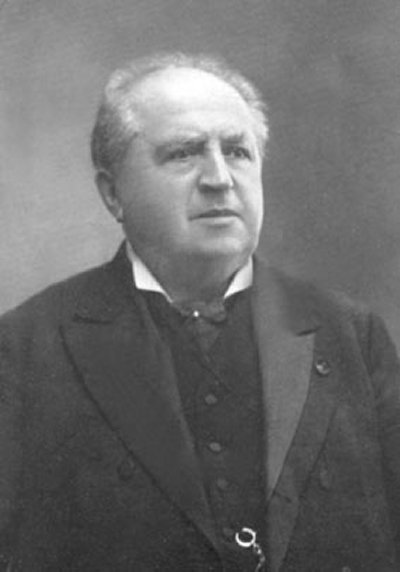
Historical Theology (10)

The proclamation of new discoveries is not always a proof of devotion to the truth, it is sometimes a tribute to self-esteem.

Abraham Kuyper
Sacred Theology, 577 it is not true to say that Christians capitulated to the mind-set of the surrounding philosophical culture. On the contrary, the philosophers whom they are accused of imitating were the last people in the ancient world to accept the gospel message. SO reluctant were they, in fact, that in 529 the emperor Justinian closed the remaining philosophical schools and exiled their members to Persia. If Christianity had been little more than another philosophy, it is hard to see why resistance to it would have been that strong.God Has Spoken, 311
The recovering of old truth, truth that has been a means of blessing in the past, can under God become the means of blessing again in the present, while the quest for newer alternatives may well prove barren.
Packer, J. I.. Rediscovering Holiness: Know the Fullness of Life with God (Kindle Locations 97-98). Baker Publishing Group. Kindle Edition. Rediscovering Holiness: Know the Fullness of Life with God (Kindle Locations 97-98). Baker Publishing Group. Kindle Edition.
After 800 there was a definite pause in theological creativity as the churches absorbed the lessons of the past and appropriated their inheritanceGod Has Spoken (399)
Very few people realize it, but the six days of creation in the opening chapters of Genesis, known in Greek as the hexaemeron, was the part of the Bible most frequently commented on in the early church.God Has Spoken, 164
There can be no doubt that the career of Origen marked a decisive turning point in the history of Christian theology. Before his time there were apologists who discussed particular aspects of the subject, often (though not always) in response to the challenges posed by heretics and opponents, both Jewish and Christian. With Origen, however, we come to the work of a theologian whose main concern was to develop the internal logic of God's self-revelation and show how its different parts come together in a coherent whole.God Has Spoken, 147
the first Christian preachers seem to have made no sharp distinction between literalist treatments of the text, Midrash exegesis, Pesher interpretation, and the application of accepted predictive prophecies. All of these were employed, and at times there appears a blending and interwearving of methods. What they were conscious of, however, was interpreting the Scriptures from a Christocentric perspective, in conformity with the exegetical teaching and example of Jesus, and along Christological lines.Biblical Exegesis in the Apostolic Period (103)
every theologian shall, in his investigations, reckon with all those things that are taught him by the history of the churches concerning well and badly chosen paths in this territory to be investigated; and, also, in the second place, that he shall take the dogmas of his Church as his guide, and that he shall not diverge from them until he is compelled to do this by the Word of God.Sacred Theology, 577
the investigator of the Holy Scripture shall take account of what history and the life of the Church teaches concerning the general points of view, from which to start his investigation and which paths it is useless to further reconnoitre.Sacred Theology, 576
Even Calvin is clearly conscious that he builds on the theology of Augustine and Thomas Aquinas; and he who reads the original Lutheran and Reformed dogmatists, perceives at once that they make constant use of what has been contributed by Romish theologians. But in the subsequent period that usage has become extinct. Every church withdraws itself within its own walls; and finally it seems that there is no theology for the dogmatist, but that which rests upon his own confession.Principles of Sacred Theology, 323
Get notified when new 'Historical Theology' quotes come out?
Top Authors
1. Charles Spurgeon (132)
2. Thomas Watson (125)
3. J.C. Ryle (117)
4. John Calvin (104)
5. J.I. Packer (89)
6. John Piper (86)
7. George Swinnock (75)
8. A.W. Pink (68)
9. Louis Berkhof (63)
10. John Flavel (58)
11. B.B. Warfield (58)
12. C.S. Lewis (55)
13. John Owen (54)
14. Martyn Lloyd-Jones (54)
15. Gerald Bray (50)
16. Francis Schaeffer (49)
17. R.C. Sproul (46)
18. Thomas Brooks (46)
19. Matthew Henry (45)
20. Francis Turretin (43)
2. Thomas Watson (125)
3. J.C. Ryle (117)
4. John Calvin (104)
5. J.I. Packer (89)
6. John Piper (86)
7. George Swinnock (75)
8. A.W. Pink (68)
9. Louis Berkhof (63)
10. John Flavel (58)
11. B.B. Warfield (58)
12. C.S. Lewis (55)
13. John Owen (54)
14. Martyn Lloyd-Jones (54)
15. Gerald Bray (50)
16. Francis Schaeffer (49)
17. R.C. Sproul (46)
18. Thomas Brooks (46)
19. Matthew Henry (45)
20. Francis Turretin (43)
Top Topics
1. Sin (195)2. Scripture (133)
3. Prayer (130)
4. Preaching (114)
5. Faith (113)
6. Gospel (92)
7. Sabbath (82)
8. Suffering (78)
9. Salvation (72)
10. Church (71)
11. Law (61)
12. The Law (58)
13. Truth (52)
14. Justification (51)
15. Christ (50)
16. Love (46)
17. Grace (42)
18. Theology (42)
19. Creation (40)
20. Fear (37)
21. Holiness (37)
22. Children (34)
23. Pride (34)
24. Sanctification (34)
25. Ten Commandments (34)
26. Worship (34)